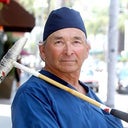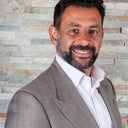How long should I be on a low sodium/high protein diet for, to optimize facelift recovery?
I understand that a low sodium diet will help reduce the normal swelling post facelift... I have seen 1500mg as a guideline but is it helpful to get even lower (say 1000mg or 1200mg) if possible, or does that give no real added benefit as compared to 1500mg? How long should this regimen be followed? And as to increased protein intake, how long is that recommended for optimum and speediest healing?








